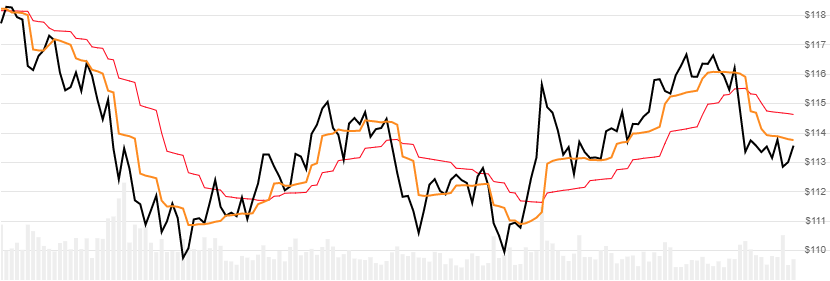MESA Adaptive Moving Average (MAMA)
Created by John Ehlers, the MAMA indicator is a 5-period adaptive moving average of high/low price that uses classic electrical radio-frequency signal processing algorithms to reduce noise. [Discuss] 💬

// C# usage syntax
IEnumerable<MamaResult> results =
quotes.GetMama(fastLimit, slowLimit);
Parameters
fastLimit double - Fast limit threshold. Must be greater than slowLimit and less than 1. Default is 0.5.
slowLimit double - Slow limit threshold. Must be greater than 0. Default is 0.05.
Historical quotes requirements
You must have at least 50 periods of quotes to cover the warmup periods.
quotes is a collection of generic TQuote historical price quotes. It should have a consistent frequency (day, hour, minute, etc). See the Guide for more information.
Response
IEnumerable<MamaResult>
- This method returns a time series of all available indicator values for the
quotesprovided. - It always returns the same number of elements as there are in the historical quotes.
- It does not return a single incremental indicator value.
- The first
5periods will havenullvalues forMamasince there’s not enough data to calculate.
⚞ Convergence warning: The first
50periods will have decreasing magnitude, convergence-related precision errors that can be as high as ~5% deviation in indicator values for earlier periods.
MamaResult
Date DateTime - Date from evaluated TQuote
Mama decimal - MESA adaptive moving average (MAMA)
Fama decimal - Following adaptive moving average (FAMA)
Utilities
See Utilities and helpers for more information.
Chaining
This indicator may be generated from any chain-enabled indicator or method.
// example
var results = quotes
.Use(CandlePart.HL2)
.GetMama(..);
Results can be further processed on Mama with additional chain-enabled indicators.
// example
var results = quotes
.GetMama(..)
.GetRsi(..);